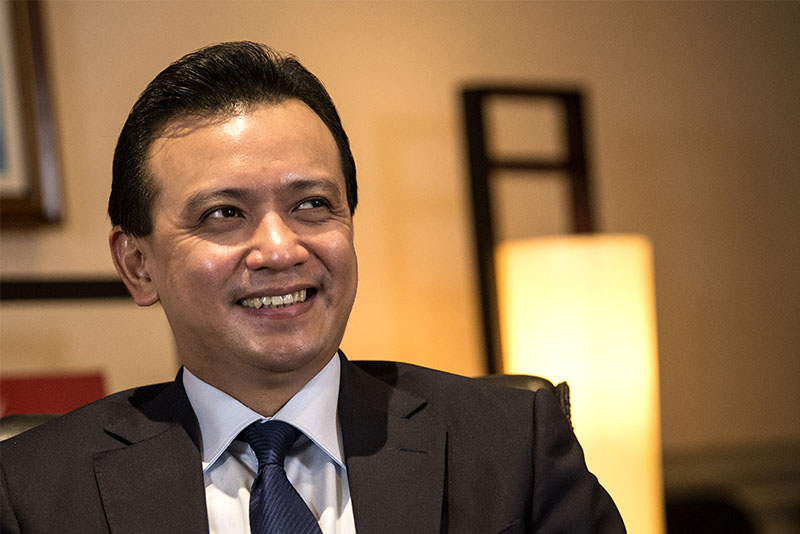Enough safeguards in police subpoena law — Sen. Panfilo Lacson
MANILA, Philippines — There are enough safeguards in the new law authorizing top officials of the Philippine National Police (PNP) to issue subpoenas, Sen. Panfilo Lacson said yesterday.
Lacson defended Republic Act 10973, the controversial law he authored, which restored the subpoena power of the PNP chief, PNP deputy director general for administration, and director of the Criminal Investigation and Detection Group (CIDG).
Lacson explained the powers given to the PNP chief, PNP deputy director general for administration, and CIDG director – the only three officials allowed to issue subpoenas – cannot be delegated.
Lacson, a former PNP chief, said individuals subpoenaed may invoke their constitutional right against self-incrimination, remain silent, and/or contest the subpoena before the courts.
“No one can be forced to give a testimony that may implicate himself or herself,” he told dzBB. “Another safeguard is one can go to the courts or the Supreme Court and seek a TRO (temporary restraining order) or certiorari.”
Lacson said those summoned may also avail themselves of the services of a lawyer or be provided with one by the PNP from the Public Attorney’s Office.
The Criminal Investigation Unit, the precursor to the CIDG, had a subpoena power when it was under the defunct Philippine Constabulary (PC).
RA 6975, or the Department of the Interior and Local Government Act of 1990, created the DILG and the PNP, which then replaced the PC and the Integrated National Police.
- Latest
- Trending






























